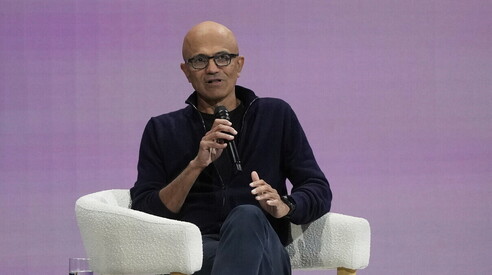Nobody puts Bing in the corner


Satya Nadella (LaPresse)
Shaking up the status quo
The story of how Microsoft's search engine shed its nerdy air and made inroads into an industry that seemed to be under siege by Google. This was also thanks to the initiative of its CEO, Satya Nadella, who actually turned out to be cooler and more unconventional than many Musks, Bezoses, and Zuckerbergs.
In recent years, we've become accustomed to seeing big tech CEOs transform into showbiz personalities. Elon Musk tweeting and throwing flamethrowers on stage, Jeff Bezos working out, Mark Zuckerberg practicing Brazilian jiu-jitsu : we're in the era of billionaire CEOs who want to appear cool, and unconventional.
Yet, if you look closely, the most gangster-like thing that has been done (in this case, said) by a Silicon Valley bigwig in recent years came not from them but from Satya Nadella , CEO of Microsoft.
It was February 2023, a few months after the release of ChatGPT. Nadella was interviewed by Nilay Patel, editor of The Verge, on his podcast "Decoder," at a time when Microsoft was pushing hard on artificial intelligence . After all, the company had in the previous years formed an alliance with OpenAI, then a relatively unknown nonprofit AI lab, which, by a twist of fate, had produced the product of the year—or of the decade?
Nadella's goal was to take advantage of the favorable winds of expansion, and at the center of his ambitions was Google, which had been surprised by the chatbot's success and was in a period of great internal upheaval. So much so that its CEO, Sundar Pichai, had even declared an internal "red flag," concerned about the scope of the innovation. Around that time, Microsoft announced a new version of Bing , its historically ignored search engine, enhanced with OpenAI's AI. It was an excellent opportunity to try to even slightly shift the balance of the online search industry, which was dominated 93 percent by Google, with Bing having been content with about 2 percent for years.
During that interview, Nadella uttered a sentence that today resonates as a key moment of that period: "I have the utmost admiration for Google. They're an incredible company, with extraordinary talent. That's precisely why I want us to innovate. Today, we've brought a little more competition to search . I've been working there for 20 years, and I've been waiting for this for a long time. But ultimately, they're the 800-pound gorilla in this story. And I hope that, thanks to our innovation, they feel compelled to go out and know they know how to dance. I want people to know that we made them dance."
No chainsaw or insults via tweet, but the message was still clear and quite direct: Google has stopped innovating in the sector and perhaps needs a little push, which we are willing to give . Behind that sentence was a very precise plan. The online search market is worth billions: even a single percentage point shift in market share can have a huge impact.
About two years later, the numbers seem to prove Nadella right. According to Statcounter, at the end of 2024, Google's global market share fell below 90 percent for the first time since 2015. If we look only at desktop traffic, Statista's data shows an even more dramatic decline: Google went from a stable share of between 85 and 87 percent to 79.1 percent in January 2025. Over the same period, Bing grew: from 6 percent in 2020 to 12.2 percent at the beginning of 2025. In short, the gorilla danced.
Of course, this change is the result of several factors. First and foremost, artificial intelligence itself has changed everything , from Google (which launched AI Overview, which responds directly to users) to user habits, which are increasingly using ChatGPT or similar chatbots instead of search engines. And then there's the US antitrust authority, which recently ruled that Google has gained a dominant position in the search market and may require the company to sell Chrome, its browser.
Amid all this, however, Bing has managed to carve out a new role for itself, shedding its somewhat lame image as a perpetual second best to convince a good number of users to use its product . Meanwhile, Google has also gotten back into the game, after an initial estrangement. Thanks to DeepMind, its AI lab, it has some of the most experienced researchers in the field, and the Gemini suite of products is a success.
But the fact remains that Microsoft managed to shake up the status quo. It made inroads into an industry that seemed secure . And it did so not with muscle, but with a good idea, perfect timing, and a clear strategy. In business, it seems, these things are still needed.
More on these topics:
ilmanifesto



-kwMF-U60202424482Uyy-1440x752%40IlSole24Ore-Web.jpg%3Fr%3D1170x507&w=3840&q=100)

